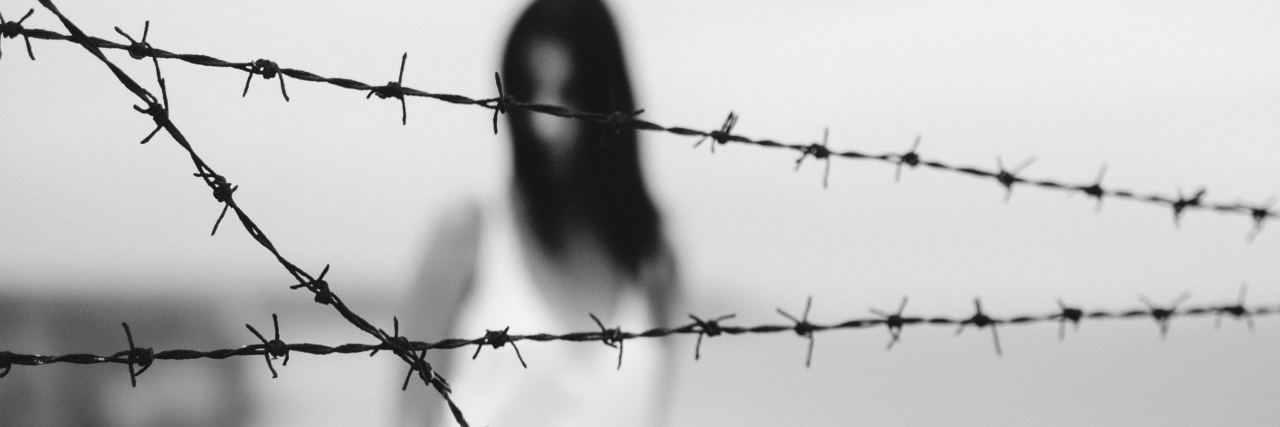What Safety Means to Me as Someone With Complex PTSD
Editor's Note
If you’ve experienced domestic violence, sexual abuse or assault, the following post could be potentially triggering. You can contact The National Domestic Violence Hotline online by selecting “chat now” or calling 1-800-799-7233, or The National Sexual Assault Telephone Hotline at 1-800-656-4673.
Complex post-traumatic stress disorder (C-PTSD) is a type of PTSD that results from exposure to prolonged trauma, often in childhood.
Something those battling C-PTSD often feel is a chronic sense that the world around them is unsafe. It’s hard to convince someone with C-PTSD they are safe; their experiences tell them otherwise. Often, there have been multiple and repeated incidents in the person’s past (often perpetrated by those closest to them) that “prove” the world to be an unsafe place. This results in situations in adult life that hold the potential (no matter how small that potential) for danger, which triggers the fight, flight or freeze response. For many trauma survivors, this response may have actually protected them against danger in their past. It may have helped fight off or run away from their attacker. The freeze response may have helped a trauma survivor appear calm and unthreatening during an episode of abuse, preventing the abuse from escalating. Dissociation may have also helped the person protect their mind against painful experiences from which they had no possibility of escape.
For me, all of this means I frustratingly wrestle with my symptoms. On a good day, only things directly related to the trauma trigger my PTSD symptoms. At times of high stress (for example, after I was sectioned and admitted to a psych ward), pretty much everything seems like danger and triggers those symptoms. People would tell me it was my illness making me see danger in every corner. I would counter that this was irrelevant; it doesn’t matter how irrational my fears seemed to others; if it’s something that could happen, then in my mind, that’s good reason to feel fear.
For other people, the childhood monsters under the bed are figments of the imagination, easy to brush off and forget with the insight of an adult brain. But for me, I can’t brush off my monsters. They were real. The bogeyman really exists. The world was meant to be a safe place when I was a child; adults were meant to protect me, and systems were meant to exist to ensure my safety even if the adults in my life couldn’t. The adults became my monsters and the system let me slip through the cracks. So, why on earth would I trust that people and systems will keep me safe now?
I’m learning to manage my triggers in a way that accepts the very real basis of my fears, but also allows my response to be more measured and proportionate. For example, a big trigger for me is the smell of wine on a man’s breath. It’s something that makes me feel sick to my stomach; my breathing speeds up, my heart rate increases. This is often accompanied by intrusive memories or flashbacks. What I’m learning to do now is acknowledge triggers like this and allow myself to accept them. In turn, this allows me to start to come to a more rational response.
I assess the situation; is the person in question a drunken, aggressive stranger barreling at me down the street? If so, the fight or flight response is probably appropriate. But, if more likely, this trigger comes from a friend harmlessly reaching across me to grab the ketchup whilst having a glass of wine with dinner, then the response is not warranted. I use grounding techniques to remind me where I am. I use breathing techniques to slow down my body’s response. I distract myself with positive memories about the person in question. I remind myself of all the reasons this person is not a threat. I think of all the times they have shown me love and support.
It’s not a perfect system; I wish I could just avoid these reactions altogether. But the reality is, I’m probably always going to have problems trusting the world. Yet, there are people in my life who have shown me over and over again that they are not going to hurt me. My experiences and my mind itself can take me into some pretty choppy waters while navigating life. Yes, there are times where the world has felt like a cliff, and me a boat smashing against the rocks. But my loved ones are my safe harbor, a place to land in a storm. And as long as I have that, I think I’ll be OK.
Photo by Velizar Ivanov on Unsplash

